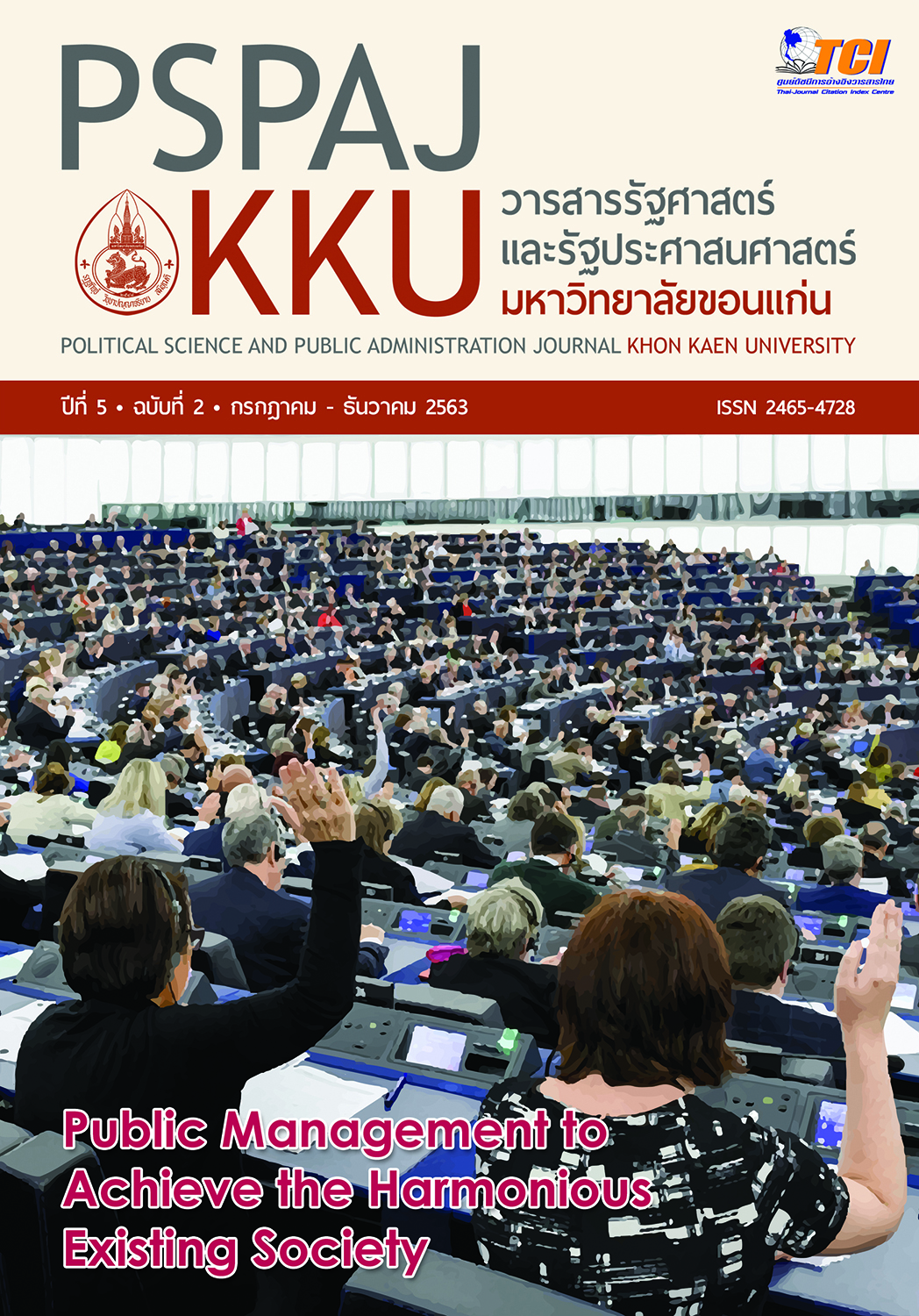ประชาธิปไตยแบบร่วมไตร่ตรอง : ว่าด้วยปัญญาของกลุ่มคนในวิกิพีเดีย
Main Article Content
บทคัดย่อ
การวิจัยนี้มีวัตถุประสงค์เพื่อตอบคำถามว่ามโนทัศน์ปัญญาของกลุ่มคนมีเหตุผลสนับสนุนที่จะทำให้วิกิพีเดียมีความน่าเชื่อถือหรือไม่ ซึ่งเป็นการวิจัยเชิงเอกสารโดยใช้วิธีการเชิงปรัชญา จากการศึกษาพบว่า มีข้อโต้แย้งต่อปัญญาของกลุ่มคนในวิกิพีเดีย 3 ประการด้วยกัน ประการแรกคือข้อโต้แย้งที่ว่ามีกลุ่มคนเพียงจำนวนน้อยเท่านั้นที่เข้ามามีส่วนร่วมในการใช้งานและแก้ไขวิกิพีเดีย ประการที่สอง ผู้เขียนวิกิพีเดียไม่ได้มีความหลากหลาย เพราะส่วนมากจะเป็นผู้ชายและเป็นผู้ที่ใช้ภาษาอังกฤษเป็นภาษาแม่เท่านั้น และประการที่สามการร่วมสนทนาในวิกิพีเดียเป็นกระบวนการของกลุ่มคนจำนวนน้อยเท่านั้นซึ่งทำให้ความน่าเชื่อถือที่ควรมีต่อวิกิพีเดียลดลงและการร่วมหาฉันทามติยังนำไปสู่การยับยั้งความหลากหลายของความคิด ข้อโต้แย้งเหล่านี้ชี้ให้เห็นว่าวิกิพีเดียไม่ได้มีมโนทัศน์ปัญญาของกลุ่มคนจริง ๆ ดังนั้นจึงไม่อาจใช้มโนทัศน์ดังกล่าวมาให้เหตุผลสนับสนุนวิกิพีเดียได้ อย่างไรก็ตามผู้วิจัยได้ทำการปกป้องว่าวิกิพีเดียมีมโนทัศน์ปัญญาของกลุ่มคน ข้อโต้แย้งทั้งสามประการที่ยกมาข้างต้นนั้นไม่อาจนำไปสู่การปฏิเสธว่าวิกิพีเดียเป็นแหล่งความรู้อย่างหนึ่งได้ และบทความนี้เสนอว่า เราในฐานะผู้อ่านวิกิพีเดียต้องตระหนักว่าข้อมูลเหล่านั้นแม้จะมาจากปัญญาของกลุ่มคนแต่ก็จำเป็นจะต้องตรวจสอบอยู่เสมอ
Article Details
เอกสารอ้างอิง
อดิศร กรอบกระจก. (2558). การประเมินค่าทางญาณวิทยาของวิกิพีเดีย. วิทยานิพนธ์อักษรศาสตรมหาบัณฑิตสาขาวิชาปรัชญา คณะอักษรศาสตร์ จุฬาลงกรณ์มหาวิทยาลัย.
Anderson. (2006). The long tail. New York: Hyperion.
Adler, B. T., Chatterjee, K., De Alfaro, L., Faella, M., Pye, I., & Raman, V. (2008). Assigning trust to Wikipedia content. In Proceedings of the 4th International Symposium on Wikis. pp. 26. New York: ACM Press.
Boghossian, P. (2007). Fear of knowledge: Against relativism and constructivism. Oxford: Clarendon Press.
Fallis, D. (2004). Epistemic Value Theory and Information Ethics. Minds and Machines, 14(1), 101-117.
Fallis, D. (2006). Social epistemology and information science. Annual review of information science and technology, 40(1), 475-519.
Fallis, D. (2007). Toward an epistemology of intellectual property. Journal of Information Ethics, 16(2), 34-51.
Fallis, D. (2008). Toward an epistemology of Wikipedia. Journal of the American Society for Information science and Technology, 59(10), 1662-1674.
Ford, H., & Wajcman, J. (2017). ‘Anyone can edit’, not everyone does: Wikipedia’s infrastructure and the gender gap. Social studies of science, 47(4), 511-527.
Frankfurt, H. (2005). On Bullshit. Princeton, NJ: Princeton University Press.
Giles, J. (2005). Internet encyclopaedias go head to head. Nature, 438, 900-901.
Janis, I. L. (1982). Groupthink: Psychological studies of policy decisions and fiascoes (Vol. 349). Boston: Houghton Mifflin.
Judd, T., & Kennedy, G. (2011). Expediency‐based practice? Medical students' reliance on Google and Wikipedia for biomedical inquiries. British Journal of Educational Technology, 42(2), 351-360.
Kittur, A., & Kraut, R. E. (2008). Harnessing the wisdom of crowds in Wikipedia: Quality through coordination. In Proceedings of the 2008 ACM conference on computer supported cooperative work. pp. 37–46. New York: ACM Press.
Magnus, P. D. (2006). Epistemology and the Wikipedia, In North American Computing and Philosophy Conference. pp. 1–7. New York: [n.p.].
Mann, T. (1993). Library Research Models. New York: Oxford University Press.
Oeberst, A., von der Beck, I., Cress, U., & Nestler, S. (2019). Wikipedia outperforms individuals when it comes to hindsight bias. Psychological research. 1-11.
Read, B. (2006). Can Wikipedia ever make the grade. Chronicle of Higher Education, 53(10), A31.
Rosenzweig, R. (2006). Can history be open source? Wikipedia and the future of the past. The journal of American history, 93(1), 117-146.
Shen, X. L., Cheung, C. M., & Lee, M. K. (2013). What leads students to adopt information from W ikipedia? An empirical investigation into the role of trust and information usefulness. British Journal of Educational Technology, 44(3), 502-517.
Solomon, M. (2006). Groupthink versus the wisdom of crowds: The social epistemology of deliberation and dissent. The Southern Journal of Philosophy, 44(S1), 28-42.
Surowiecki, J. (2004). The wisdom of crowds. New York: Doubleday.
Sunstein, C. R. (2006). Infotopia: How many minds produce knowledge. Oxford University Press.
Threlkeld, S. (1998). A blueprint for democratic law-making: give citizen juries the final say. Social Policy, 28(4), 5-10.
Tollefsen, D. P. (2009). Wikipedia and the Epistemology of Testimony. Episteme, 6(1), 8-24.
Xiao, L., & Askin, N. (2012). Wikipedia for academic publishing: advantages and challenges. Online Information Review, 36(3), 359-373.


